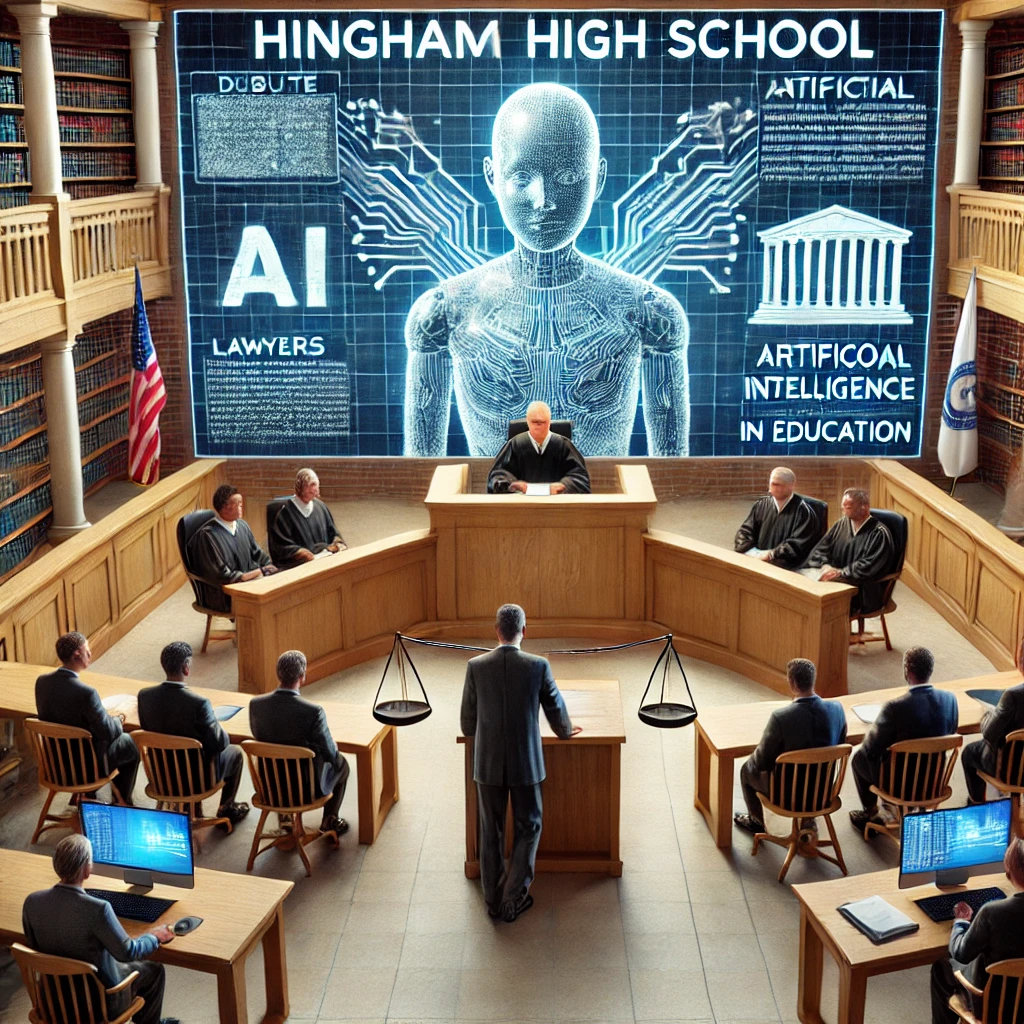The Hingham High School AI lawsuit has become a focal point in discussions about ethics, technology, and education. With artificial intelligence reshaping industries and institutions, this case sheds light on the complexities schools face in adapting to cutting-edge advancements.
The Background of the Lawsuit**
Hingham High School found itself at the center of a legal controversy involving the use of AI-driven technologies. The dispute reportedly arose from the deployment of an AI system aimed at monitoring students’ academic performance, behavior, and potential risks. While intended to enhance safety and academic outcomes, concerns about data privacy and algorithmic bias led to objections from parents, students, and advocacy groups.
### **Key Issues in the Lawsuit**
#### **Data Privacy Concerns**
A central issue in the Hingham High School AI lawsuit is data security. Critics argue that the AI system collects sensitive personal information, raising questions about how this data is stored, shared, and used. The potential for breaches or misuse of student information has alarmed many stakeholders.
#### **Algorithmic Bias**
Another critical aspect of the lawsuit is the possibility of algorithmic bias. If the AI system relies on incomplete or skewed data, it might unintentionally discriminate against certain groups, exacerbating inequalities instead of addressing them.
#### **Transparency and Accountability**
Parents and students have expressed frustration over the lack of transparency in the AI’s implementation. Concerns include unclear policies regarding how decisions are made by the AI system and who holds responsibility for errors or inaccuracies.
### **The Legal Perspective**
From a legal standpoint, the case hinges on balancing technological innovation with ethical practices. The lawsuit explores whether the school violated privacy laws or acted beyond its authority in implementing such a system without adequate consultation. It also raises broader questions about the role of technology in public education and the rights of students as digital citizens.
### **Broader Implications for Education**
The Hingham High School AI lawsuit underscores the challenges schools face in adopting emerging technologies. While AI holds tremendous potential to enhance learning experiences, it also brings risks that require careful management.
#### **Ethical Considerations**
Ethical frameworks are essential to ensure AI is used responsibly. Schools must prioritize fairness, transparency, and inclusivity when implementing AI systems.
#### **Student Empowerment**
The controversy has sparked discussions about student agency in the digital age. Many argue that students should have a voice in how technology impacts their education and personal data.
#### **Future Policy Recommendations**
Policymakers are closely watching the outcome of this case to establish guidelines for AI use in schools. Clearer regulations could help prevent similar disputes in the future.
### **Potential Outcomes of the Lawsuit**
The resolution of the Hingham High School AI lawsuit could set a precedent for other educational institutions. Possible outcomes include stricter policies on AI usage, increased oversight of data practices, and a shift toward greater transparency. Regardless of the legal decision, the case has already ignited a crucial conversation about the role of AI in society.
### **Conclusion**
The Hingham High School AI lawsuit highlights the complexities of integrating artificial intelligence into education. As schools embrace new technologies, they must also navigate ethical, legal, and social challenges. This case serves as a reminder that while innovation is essential, it should never come at the expense of privacy, fairness, or trust.
—
### **Inbound and Outbound Link Suggestions**
**Inbound Links:**
– Link to articles discussing AI in education trends.
– Resources on ethical technology use in schools.
**Outbound Links:**
– Relevant legal documents or summaries of privacy laws.
– Advocacy group websites focusing on digital rights for students.
